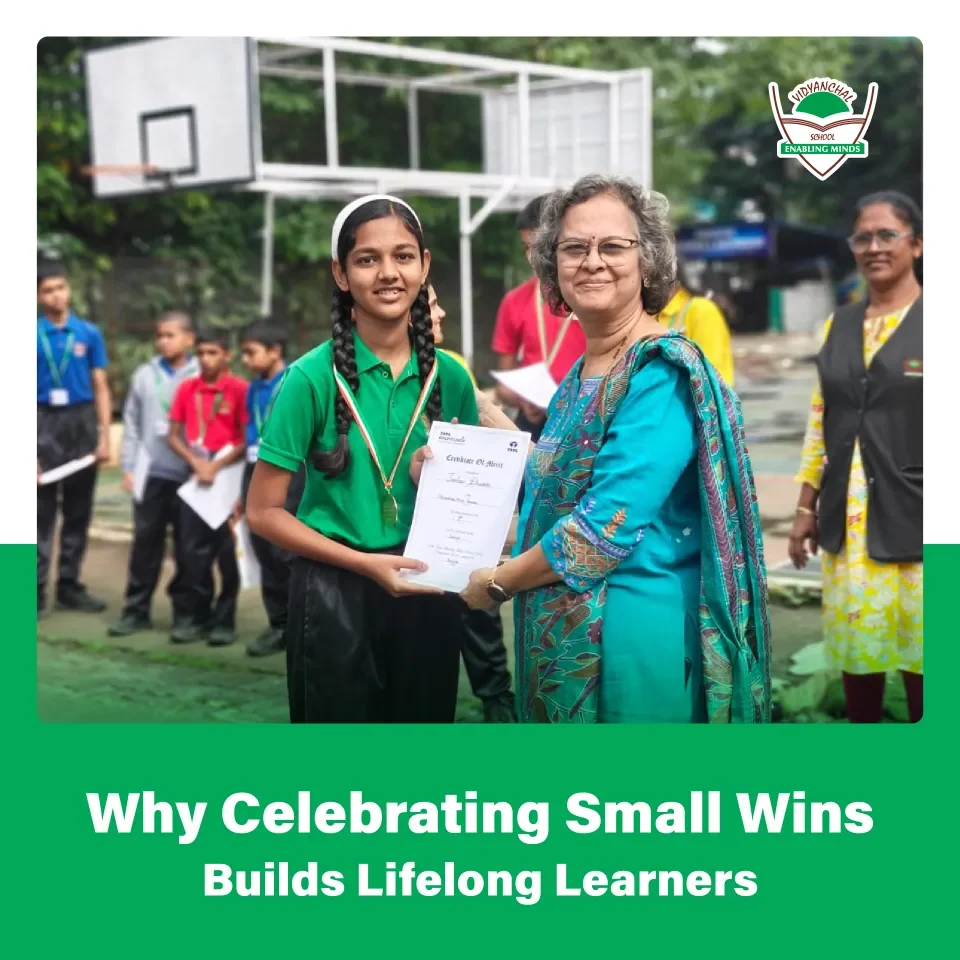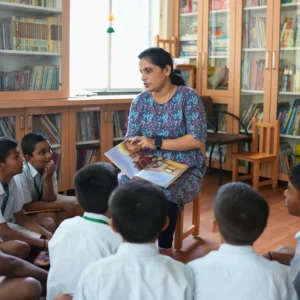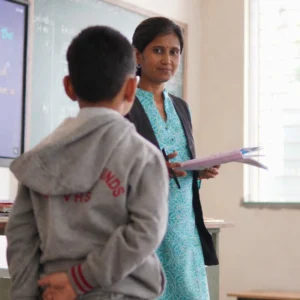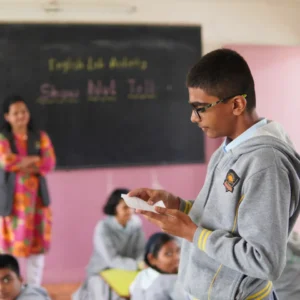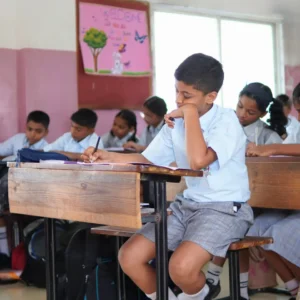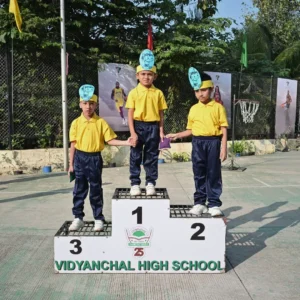In Indian households, academic success is often equated with big milestones: topping the board exams, winning a trophy, cracking NEET or JEE. But what if we told you that the most powerful force behind lifelong learning isn’t the big wins—but the small ones?
At Vidyanchal High School (VHS), we believe that every achievement, no matter how small, lays the foundation for confidence, curiosity, and growth. Recognizing those everyday efforts—whether it’s a child reading aloud for the first time, solving a tricky sum after multiple attempts, or simply asking a thoughtful question in class—helps students build lasting skills and motivation.
The Psychology Behind Small Wins
Research consistently shows that celebrating small victories increases motivation and long-term success. According to Harvard Business School’s Progress Principle, even minor progress boosts a learner’s engagement and emotional well-being by over 70%. Students become more focused, optimistic, and willing to take on challenges.
For Indian students, who often navigate intense academic expectations, this emotional buffer is crucial. It shifts focus from “performing under pressure” to “growing with purpose.”
Why Small Wins Matter in an Indian School Setting
1. Boosts Confidence in Early Learners
At Vidyanchal High School, we’ve seen how children in pre-primary and primary years blossom when small milestones are acknowledged. A child who finally writes their name legibly or spells a new word correctly receives a confidence boost that sets the tone for future learning.
In a culture where academic achievement is heavily emphasized, encouraging these everyday breakthroughs ensures that learners don’t get lost in the shadows of unrealistic expectations.
2. Improves Long-Term Academic Outcomes
Studies by Indian education boards like CBSE highlight that formative assessments—ongoing evaluations that track everyday effort and participation—lead to improved results in summative assessments. Simply put, students who feel seen for their small efforts do better in exams too.
This aligns with our internal teaching approach at VHS, where consistent appreciation leads to more than just academic success—it nurtures responsibility, pride, and curiosity.
3. Supports Growth Mindset and Grit
In one of our earlier blogs on fostering self-discipline in children, we emphasized that perseverance is a greater predictor of success than talent. When children are taught to appreciate their effort—like completing a difficult chapter or improving their handwriting—they start seeing challenges as opportunities, not roadblocks.
This builds what psychologist Carol Dweck calls a “growth mindset,” something we actively encourage at Vidyanchal.
The Neuroscience of Positive Reinforcement
Brain studies show that dopamine, the chemical associated with motivation, is released not only when we achieve big goals, but also when we’re praised for progress. Frequent small rewards help children associate learning with joy, not stress—a critical factor in shaping future attitudes.
This insight influences our classroom culture at VHS. Teachers use verbal appreciation, stars, stickers, and “shout-out moments” during circle time or assemblies to celebrate students—not just for scoring high, but for showing effort, asking a smart question, or helping a peer.
Practical Ways We Celebrate Small Wins at Vidyanchal
- “Win of the Week” Boards: Classrooms regularly highlight a student’s unique progress—from finishing a book to demonstrating empathy.
- Effort Cards: In addition to academic assessments, children receive recognition cards for behaviors like trying something new or showing persistence.
- Growth Reflections: Students are encouraged to journal what they’ve improved upon during the week. This builds self-awareness and responsibility.
- Peer Recognition Circles: Children are invited to praise their classmates for acts of kindness or hard work, reinforcing a positive, supportive classroom culture.
Parents: Why You Should Celebrate Small Wins Too
A study by India’s National Institute of Mental Health and Neurosciences (NIMHANS) found that positive reinforcement at home increases emotional regulation and reduces anxiety among school-going children. So, the next time your child ties their shoelaces independently, completes homework on time, or revises without being reminded—celebrate it.
Even a simple “I noticed your effort” can work wonders.
In our blog on discipline through structure, not pressure, we touched upon how a supportive, rather than punitive, environment shapes resilient learners. Recognizing effort is central to this philosophy.
Real Growth Takes Time—and Recognition
We often expect children to achieve big things quickly. But real learning is not a leap—it’s a climb. And every step matters.
When we celebrate only the big wins, we inadvertently teach children to fear failure. But when we honour small wins—writing neater than yesterday, understanding a science concept, raising their hand in class—we teach them that progress is possible and valuable.
Over time, this mindset fosters:
- Resilience: Bouncing back from setbacks because they’ve seen themselves grow before
- Initiative: Willingness to take on new tasks, even when they’re unsure
- Joyful learning: Associating effort with achievement, not just grades
Conclusion: The VHS Way Forward
At Vidyanchal High School, our mission is to nurture curious, self-driven, and emotionally balanced learners. By celebrating small wins every day, we ensure that children not only grow academically, but also emotionally and socially.
In India’s evolving education landscape—where NEP 2020 champions holistic learning and competency-based assessment—it’s time to shift focus from just “marks” to “milestones.”
Because when a child learns to celebrate the process, they remain a learner for life.

